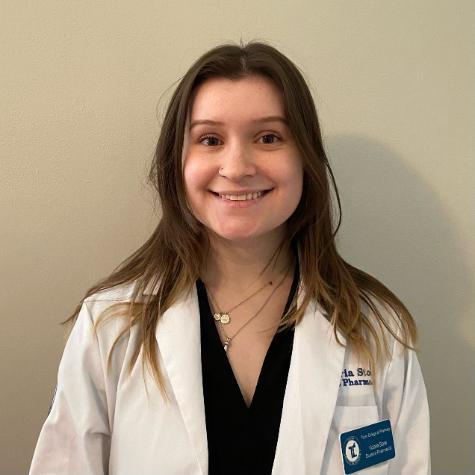The Future of Community Pharmacy
Q&A with Second-Year Pharmacy Student Victoria Stone on Her Pharmacy Leadership Program and Learning by Doing

Second-year Touro College of Pharmacy (TCOP) student Victoria Stone recently joined a cohort of 50 pharmacy students nationwide selected to participate in a leadership program for aspiring pharmacists interested in community pharmacy. We spoke with Victoria about her interests in pharmacy.
How did you become interested in pharmacy, and in community pharmacy?
I became interested in community pharmacy working at Walgreens as a part time pharmacy technician during college. I didn’t know a lot about community pharmacy but the experience helped me see myself as a pharmacist.
Where do you envision yourself working - in a retail setting, or in a hospital?
I am keeping my options completely open right now. I have many interests, such as clinical pharmacy in a hospital, managed care pharmacy, and community pharmacy. Classroom learning has been great preparation. Through my experiences working as a pharmacy technician and now as a pharmacy intern, I am able to put into practice what I’ve learned.
How can community pharmacy solve some of its challenges, like workforce shortages?
Workforce shortages are major issues in the realm of community pharmacy. I firmly believe that the pharmacy technician position should be a career, and should require more certification and education, and in turn, more pay. Framing this position as a career, with room for growth and pay raises, would encourage more people to become interested and once pharmacy technicians become more professionally trained, much of the workload can be taken off the pharmacist to allow them to focus more on clinical and patient care services. This would also make the pharmacist side of the job more appealing and hopefully encourage more pharmacists to go into community pharmacy!
How has Touro College of Pharmacy impacted your goals and career trajectory?
TCOP has been an important influence on my goals and career trajectory. Through the many professors and guest lecturers I have met, I am able to see all of the different career paths possible. Community pharmacy is just one of the many options. A pharmacist can work in the hospital rounding with physicians, or in clinical research at major pharmaceutical companies like Pfizer or Merck, or work for insurance companies to provide a clinical perspective to a business. To anyone considering pharmacy: the possibilities are endless!

